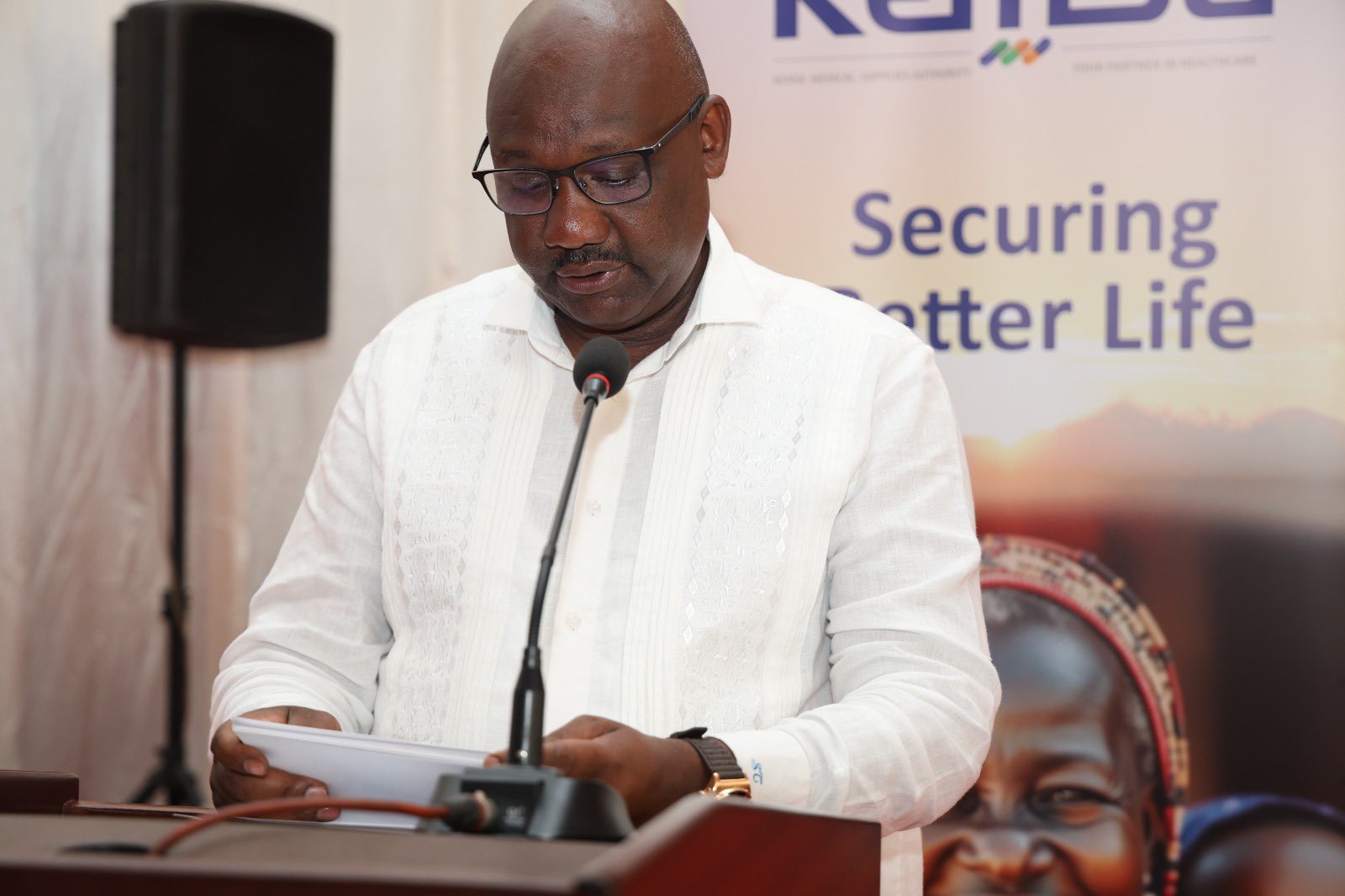
The Kenya Medical Supplies Agency (KEMSA) has identified three key focus areas as part of its strategic plan to enhance efficiency.
KEMSA chairperson Samuel Tunai told a workshop on Tuesday that the agency will prioritize enhancing financial stability, boosting liquidity, and strengthening governance and accountability.
Speaking at a KEMSA stakeholders' forum, Tunai acknowledged the significant responsibility and high expectations Kenyans have for the agency.
“In recent times, KEMSA has faced heightened scrutiny and increased responsibility to operate with the highest standards of governance and integrity,” Tunai said.
Tunai spoke as the board guided management in analyzing the organization’s strengths and weaknesses as part of the strategies to establish interventions aimed at revamping the supply chain, ensuring value-driven procurement, operational excellence and improved customer satisfaction.
To increase accountability and transparency, Tunai announced that KEMSA would boost investment in innovation to improve visibility across the entire process, restore trust and rebuild public confidence
To achieve long-term financial stability, Tunai said KEMSA will invest in digitizing the supply chain, including implementing real-time tracking of medical supplies to reduce inefficiencies and losses.
The agency will also diversify its revenue streams by exploring partnerships with private health facilities.
On governance and accountability, Tunai emphasized that KEMSA will strengthen oversight mechanisms to prevent corruption and financial mismanagement.
To boost liquidity in the short term, KEMSA will prioritize debt recovery by strictly following up on outstanding payments from hospitals and county governments.
Tunai further stated that the agency will improve inventory management through stock optimization to prevent overstocking and wastage.
Additionally, procurement reforms will be implemented to ensure timely supplier payments while negotiating better terms for essential medicines.
The chairperson stressed that consultants play a crucial role in the success of this strategy, alongside all employees within the organization.
“As professionals and academics, we are responsible. When we fail to improve our deliverables, we let our people down, and it impacts lives,” Tunai said.
“As a team, we are only as strong as our weakest link.”
Tunai challenged the organization to renew its commitment to employees by fostering diversity, talent development, and a reward system.
“Let’s focus on competence—skills, knowledge, and attitude. Identify talent, create a pipeline for future leaders, and implement a system of rewards and recognition," he said.
We must promote diversity and inclusion by increasing the number of women in management, creating opportunities for differently-abled individuals, and fostering an environment of continuous learning."
He emphasized the importance of supporting strategy
implementation through change management training and emotional intelligence
workshops for all employees across the organization.
On a positive note, Tunai highlighted recent improvements at KEMSA, noting that the latest Auditor General’s report gave the agency an unqualified opinion, signalling progress.
“We have a fiduciary responsibility in our current roles, but now more than ever, we will also be judged morally and socially in our delivery,” Tunai warned.
“Over the next few days, let us contribute while we learn, unlearn, and relearn—working together to serve our nation with professionalism, integrity, and accountability."
He noted that in recent years, the demand for greater transparency, efficiency, and accountability within public health organizations has never been more urgent.
Public outcry over past inefficiencies and governance challenges has reinforced the critical need for change.
“This workshop is a proactive response to these concerns. Our goal is to ensure that board members and top management receive the skills and knowledge necessary to drive organizational excellence and foster a culture of integrity,” he said.
Tunai urged participants to focus on embedding integrity and accountability into KEMSA’s operations.
“We have an opportunity to dissect our previous strategy—analyzing its strengths and weaknesses—to achieve sustainable and lasting results through an inspired and empowered workforce.”
















